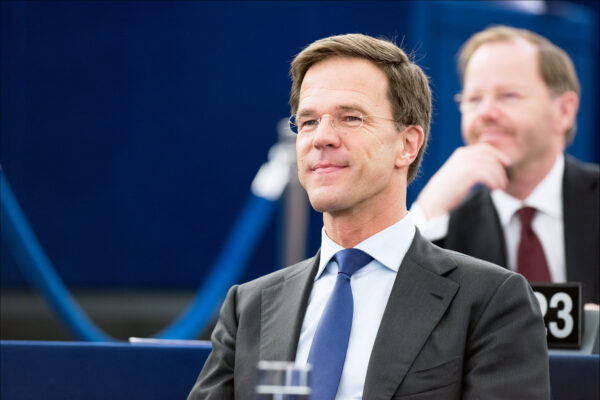
A split on the Dutch far right has given Prime Minister Mark Rutte an alternative to doing deals with left-wing opposition parties in the upper house of parliament.
The four ruling center-right parties lost their majority in the Senate in May, going down from 38 to 32 out of 75 seats. It looked like they would need the opposition Labor Party or Greens for a majority, who were looking forward to exchanging their support for more left-wing policies.
But this week, the government was able to pass environmental legislation with eight votes from the right, including three defectors from the far-right Forum for Democracy.
Break
Forum tied with Rutte’s liberal party in the most recent Senate election. Both won twelve seats.
But the former split in July, when three senators, led by Henk Otten, broke with leader Thierry Baudet over his far-right policy.
Baudet has flirted with white nationalism and expressed admiration for strongmen like Viktor Orbán, Vladimir Putin and Donald Trump. For Otten and his allies, this went too far.
Public support for Forum has fallen from a high of 16 percent in May to 8-10 percent in recent surveys.
Relief
Otten’s faction does not have the numbers to give Rutte a majority on its own. But it can team up with three other small right-wing parties, including the hardline Protestant Reformed Political Party and the pensioners’ party 50+, which have two seats each.
That will be a relief to Rutte, whose party has been criticized from the right for U-turning on environmental policy.
Last month, I told you the Dutch ruling parties hadn’t lost popularity in what Rutte described as the toughest political crisis of his career.
That is still true for the Christian Democrats, liberal Democrats and Christian Union.
But support for Rutte’s party has fallen. Geert Wilders’ Freedom Party, which competes with Baudet’s for right-wing votes, has recovered from a low of 6 percent in the polls to 10-12 percent.
Pollution crisis
Rutte’s car-friendly liberals cut the daytime speed limit on Dutch highways from 130 to 100 kilometers per hour in a bid to reduce nitrogen oxide pollution.
Farmers are mandated to mix an enzyme in their livestock feed and water down manure in order reduce emissions from cows.
They still fear forced reductions in livestock, a proposal the government insists has been shelved. Farmers protested on Wednesday by clogging motorways with their tractors.
The pollution crisis has gripped the Netherlands since May, when its highest court ruled that requirements for building and farming permits did not comply with EU regulations. That put construction projects and farm expansions on hold.
The legislation passed this week allows infrastructure and housing projects to go forward and avoids reductions in livestock or farm buyouts.
Coalition-building
The crisis isn’t over. Environmentalists have said they will sue again. Detailed plans for the farm industry have yet to be worked out. As evidenced by Wednesday’s protests, many farmers have lost faith in both the government and the organizations which represent them.
The Greens still feel the government isn’t doing enough to tackle pollution while Forum for Democracy and the Freedom Party accuse Rutte of going too far.
But thanks to Rutte’s coalition-building, so far the Dutch center is holding.
